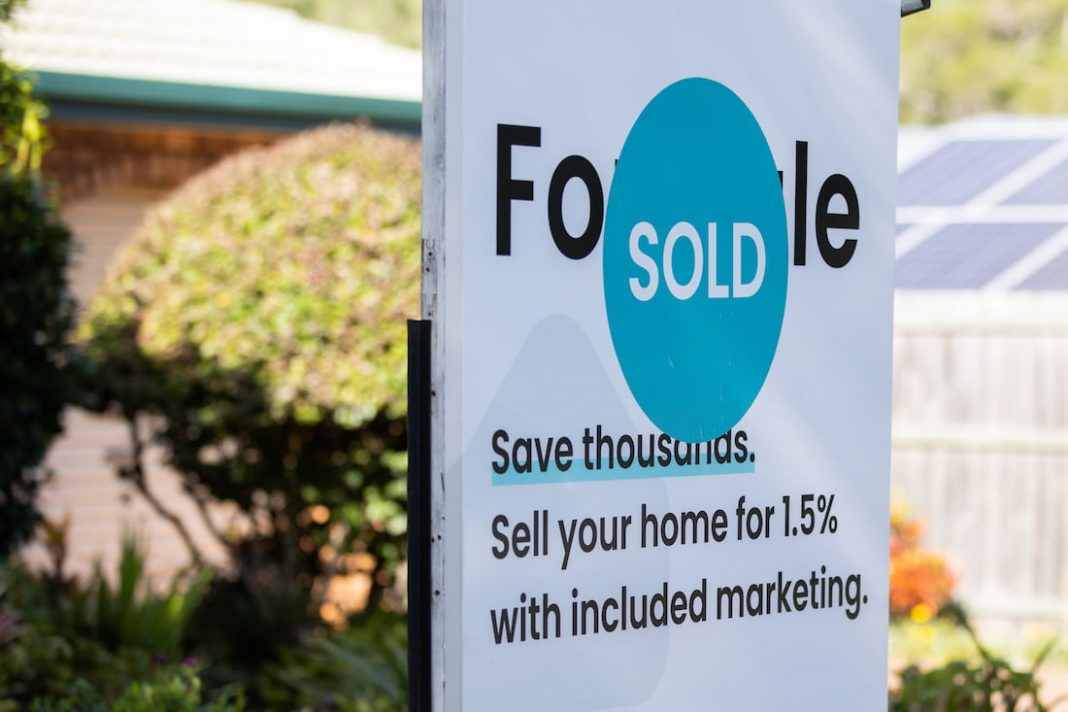The 13th cash rate increase in the Reserve Bank’s fight against inflation will be unwelcome news for mortgage holders, home buyers and industries sensitive to higher interest rates.
In a move widely expected by economists amid persistent price pressures, the Reserve Bank jacked up the cash rate to 4.35 per cent at the November meeting.
Provided lenders pass on the 25 basis point increase, RateCity analysis finds the average variable rate mortgage holder with a $500,000 loan will be slugged an extra $76 a month.
The 13 rate hikes collectively have added $1210 – or 52 per cent – to monthly repayments.
Opposition finance spokeswoman Jane Hume said the Reserve Bank had no other option but to lift interest rates due to inflation being higher than expected.
“The RBA has really been left with no choice and they sent the Albanese government a very, very direct message yesterday, and that is that they need to do more to get inflation down,” she told ABC Radio on Wednesday.
“Unfortunately, Labor still has its foot on the accelerator, and that means the RBA has to do all the heavy lifting.”
Senator Hume said domestic factors were behind core inflation remaining high, which was driving a higher cost of living.
“(RBA governor) Michele Bullock has made it very clear that the RBA is going to have to keep acting if inflation doesn’t come under control sooner,” she said.
Assistant Treasurer Stephen Jones said the government was exercising fiscal restraint in order to not make inflation higher.
“We’re delivering, ensuring that as new revenue comes in that it’s banked and goes towards paying down the previous government’s debt and bringing down the deficit, fiscally responsible, not doing the cash handout thing,” he told Sky News.
“We’re doing what we can to ensure targeted cost of living relief, which is actually helping to bring inflation down.”
RateCity research director Sally Tindall urged borrowers to haggle for a lower rate from their lender to insulate themselves from the increase.
Finding a variable rate below six per cent will likely still be possible, she said, with the average owner-occupier paying 7.11 per cent if they haven’t fought for a better deal.
Rising interest rates are also eroding borrowing power for those hoping to get into the property market.
Households need to be earning $182,000 a year to comfortably afford a mortgage on the average Australian house, according to Finder analysis that included the November hike.
That shoots up to $261,773 in Sydney, the least affordable housing market in the country.
Assistant Employment Minister Andrew Leigh said the recent interest rate rise would make it difficult for mortgage holders.
“It will be a big squeeze in many Australian households who are feeling the pinch on the mortgage,” he told ABC TV.
“We know when inflation is too high for too long, it has an adverse impact on the economy.”
Finder head of consumer research Graham Cooke said the dream of home ownership was dwindling for many new buyers.
“People are looking at stretching themselves financially in order to purchase a property,” he said.
Higher interest rates are also putting pressure on industries at the coalface of the inflation fight, including retail, hospitality and construction.
CreditorWatch chief economist Anneke Thompson said demand in these sectors had already contracted, and higher interest rates would force consumers and potential home builders to think more carefully about their future spending decisions.
“Most discretionary retailers will be already accepting stock for the Christmas season, and this cash rate rise will have many of them worried about stock levels and sales over what is usually their busiest period,” she said.
By Poppy Johnston and Andrew Brown in Canberra



